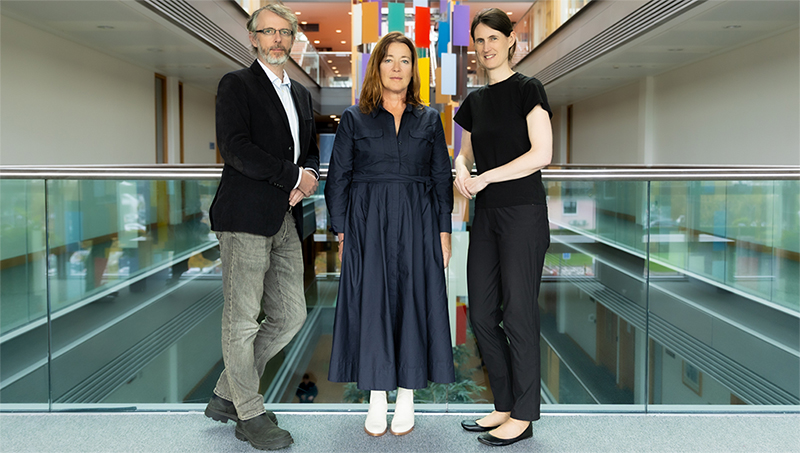
Key Highlights of the €28M Precision Oncology Ireland Initiative
On 8 October 2025, University College Cork (UCC) announced its role in the second phase of Precision Oncology Ireland (POI‑2). The €28 million funding, assembled through the Research Ireland Strategic Partnership Programme, is earmarked to develop a national platform for personalised cancer diagnostics and therapies. The programme is a public‑private partnership that unites universities, charities and industry to accelerate breakthroughs in cancer care.
Research Focus: OncoBioMaps and the Cancer Microbiome
At the heart of POI‑2 is the OncoBioMaps work package, led by Professor Mark Tangney of Cancer Research@UCC. This module will map the microbiome of cancer patients across Ireland, creating a biological atlas that links microbial signatures to tumour biology and treatment response. The platform will allow researchers to standardise sample collection, sequencing and data integration, ensuring consistent, high‑quality evidence can be generated and shared.
The microbiome is increasingly recognised as a critical biomarker. Studies suggest that microbial composition can predict how patients respond to chemotherapy, immunotherapy and targeted agents. By building a unified map, UCC aims to identify novel therapeutic targets, improve patient stratification and support the design of custom treatment regimens.
Data Integration and Analytics
OncoBioMaps will combine multi‑omics data—including genomic, transcriptomic and proteomic profiles—with clinical outcomes. Advanced computational models will be employed to uncover patterns that may go undetected in single‑omic analyses. This integrative approach positions Ireland to lead in precision oncology research and to translate findings directly into clinical practice.
Collaboration Across the Irish Healthcare Landscape
POI‑2 is coordinated by University College Dublin but relies on a consortium that includes:
- Irish universities offering complementary expertise in bioinformatics, immunology and oncology.
- Major cancer centres across the country providing access to patient cohorts and clinical data.
- Industry partners who can scale validated diagnostics and therapeutics into market‑ready products.
- Patient advocacy groups and the Cork University Foundation, which help to align research priorities with patient needs.
This multi‑sector alliance embodies a model of translational research that bridges bench‑side discovery with bedside application. By fostering open data sharing and joint resource utilisation, the partnership reduces duplication and speeds the path to improved outcomes.
Role of the Cork University Foundation
The Cork University Foundation (CUF) is not only a charity partner but also a fundraising catalyst. CEO Kerry Bryson highlighted the current lag between research discovery and clinical implementation. CUF’s targeted fundraising aims to bridge this gap, ensuring that promising research can move faster into trials and eventually into treatment pathways.
Implications for Patients and the Future of Cancer Care
For patients in Ireland, the POI‑2 partnership promises:
- Earlier and more accurate diagnosis: Biomarkers derived from the microbiome could allow clinicians to detect subtle disease changes earlier.
- Personalised treatment: Data from the platform will help clinicians select therapies with the highest likelihood of success and minimal adverse effects.
- Reduced clinical trial costs: By standardising data collection, hospitals can contribute to research without duplicating effort, making trials more efficient.
Professor Roisin Connolly, Director of Cancer Research@UCC, stated that the platform will “support the development of biological maps of patients” and that this will “lead to tangible benefit for our patients in the coming years.” The site’s commitment to translating research into practice underscores the partnership’s patient‑centred vision.
Future Directions and Community Engagement
Looking ahead, POI‑2 will expand beyond the microbiome to explore other emerging biomarkers, such as circulating tumour DNA and immune cell profiling. The research community will also launch educational initiatives to train clinicians, data scientists and patient advocates, ensuring a broad base of expertise to sustain the momentum.
UCC plans to host annual symposia that bring together stakeholders to review progress, share insights and refine the research agenda. These forums will be open to the public, reinforcing transparency and fostering community involvement.
How You Can Get Involved
Individuals with a background in research, healthcare, or data science can contribute to the consortium’s goals. Additionally, patients and families can participate by enrolling in UCC’s national cancer registries, which feed into the OncoBioMaps platform.
If you are considering a career in precision oncology or allied sciences, UCC offers a range of undergraduate and postgraduate programmes that provide the foundational knowledge and research opportunities needed to thrive in this rapidly evolving field.
Take the Next Step in Advancing Cancer Care
Whether you are a current student, a clinician, a researcher, or a patient advocate, the Precision Oncology Ireland initiative represents a significant opportunity to influence the future of cancer treatment. UCC’s leadership in this partnership positions the university as a national hub of innovation.
Interested in learning more about UCC’s research programmes or in applying for one of our study tracks? Explore UCC’s academic offerings and discover how you can become part of the next wave of medical breakthroughs.
Curious about how precision oncology could benefit you or your patients? Schedule a free consultation with UCC’s Cancer Research team to discuss potential collaborations or patient referrals.
Have questions or feedback? Contact UCC’s research office directly to connect with our experts.
Want to stay updated on the latest developments? Subscribe to UCC’s newsletter and receive timely updates straight to your inbox.
Feel free to share your experiences in the comments below or reach out on our social media channels to join the conversation about precision medicine in Ireland.

